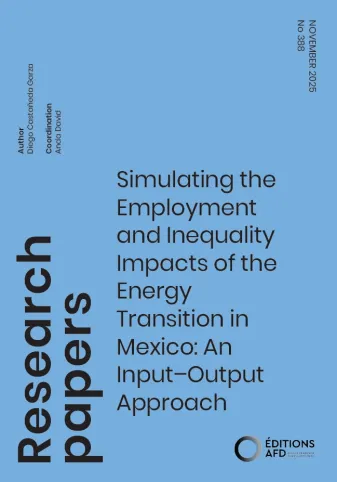Share the page
Simulating the Employment and Inequality Impacts of the Energy Transition in Mexico: An Input–Output Approach
Published on

This paper examines the distributive and labor market impacts of Mexico’s transition from fossil fuels to renewable energy using a multisector input–output model calibrated to the 2020 national accounts and projected to 2030. Four scenarios—optimistic, pessimistic, realistic, and a new 38% renewable target—are simulated to estimate direct, indirect, and induced employment effects across sectors and states. The results indicate that all transition pathways generate net employment gains, though with strong regional and gender asymmetries. Job creation is concentrated in wind and solar industries, while fossil-fuel-dependent states such as Tabasco and Veracruz face employment losses and rising income inequality. National effects on labor income inequality are modest, but regional disparities remain significant. The findings highlight the importance of targeted industrial, educational, and social policies to ensure a just and inclusive energy transition in Mexico.
Useful Information
-
Authors
-
Diego Castañeda Garza
-
Coordinators
-
Edition
-
388
-
Number of pages
-
45
-
ISSN
-
2492 - 2846
-
Collection
-
Research Papers
-
Languages
-
English
